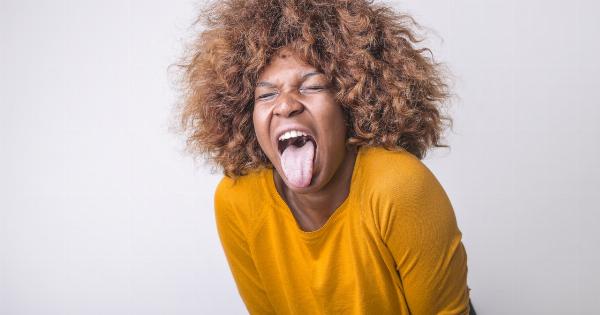Yellow teeth can be a major turn off, and can really affect your confidence levels. You may be brushing twice a day, flossing regularly, and thinking you’re doing everything right, but still end up with yellow teeth.
The reasons behind yellow teeth can vary, and not all of them are related to oral hygiene. In this article, we will explore the top reasons behind yellow teeth, and what you can do to prevent them.
Poor Oral Hygiene
The most common reason behind yellow teeth is poor oral hygiene. If you don’t brush your teeth regularly, plaque and tartar buildup can cause your teeth to turn yellow.
Plaque is a sticky film of bacteria that forms on your teeth, and can be easily removed by brushing twice a day. If you don’t remove this plaque, it can harden into tartar, which can only be removed by a dental professional. If you’re not brushing your teeth properly, you’re giving these harmful bacteria a chance to thrive, and yellow teeth may be the result.
Smoking and Tobacco Use
Smoking and tobacco use is one of the biggest culprits when it comes to yellow teeth. Not only can it cause yellowing of the teeth, but it can also lead to gum disease and bad breath.
Cigarette smoke contains tar and nicotine, which can stain your teeth and lead to yellowing. Smokeless tobacco products can also cause discoloration of the teeth. If you’re a smoker or use tobacco products, it’s best to quit for the sake of your oral health.
Food and Drink
The consumption of certain foods and drinks can also cause yellow teeth. Beverages such as coffee, tea, and soda can stain your teeth over time. Foods that are high in acidity, such as citrus fruits and tomatoes, can also cause yellowing.
It’s best to limit your consumption of these items, and brush your teeth after consuming them to prevent staining.
Dry Mouth
Saliva plays an important role in oral health, as it helps to rinse away food particles and neutralize acids in the mouth. If you suffer from dry mouth, your saliva production may be reduced, leading to yellowing of the teeth.
Dry mouth can be caused by medications, health conditions, or simply not drinking enough water. If you think you suffer from dry mouth, talk to your dentist, who can recommend ways to increase saliva production and prevent yellowing.
Aging
As we age, our teeth naturally darken and yellow. This is because the enamel, the hard outer layer of the tooth, becomes thinner, exposing the yellowish dentin layer underneath. Additionally, years of wear and tear can also lead to yellowing.
While this natural process is not preventable, it can be slowed down by practicing good oral hygiene and avoiding habits that can cause yellowing.
Genetics
Some people are simply more prone to yellowing than others, due to their genetics. Some people have thinner enamel than others, which can cause teeth to look more yellow.
Additionally, some people have a genetic predisposition to periodontal disease, which can cause the gums to recede, exposing more of the yellowish dentin layer.
Medications
Some medications, such as antihistamines and high blood pressure medication, can cause yellowing of the teeth. This is because they can reduce saliva production, which can lead to dry mouth and yellowing.
If you think your medication may be causing yellowing, talk to your dentist or doctor, who may be able to recommend alternative medications or ways to prevent yellowing.
Fluorosis
Fluorosis is a condition caused by excessive fluoride intake during the development of teeth. This can cause white spots and streaks on the teeth, as well as yellow or brown discoloration. While fluorosis is not harmful, it can be unsightly.
If you think you or your child may be at risk for fluorosis, talk to your dentist, who can recommend ways to prevent it.
Improper Brushing
Believe it or not, brushing your teeth too hard or using a toothbrush with hard bristles can actually cause yellowing. This is because aggressive brushing can wear down the enamel, making the dentin layer more visible.
It’s important to use a soft-bristled toothbrush and to brush gently, to avoid damaging the enamel and causing yellowing.
What You Can Do About Yellow Teeth
If you have yellow teeth, there are several things you can do to improve their appearance:.
- Practice good oral hygiene by brushing twice a day and flossing regularly.
- Quit smoking and using tobacco products.
- Avoid foods and drinks that can stain your teeth, or brush your teeth immediately after consuming them.
- Drink plenty of water and avoid dry mouth.
- Talk to your dentist about teeth whitening options, either in-office or at-home.
Conclusion
Yellow teeth can be embarrassing and make you feel self-conscious, but they don’t have to be permanent.
By understanding the reasons why teeth turn yellow, and taking steps to prevent and treat yellowing, you can regain your confidence and have a healthy, beautiful smile.






























